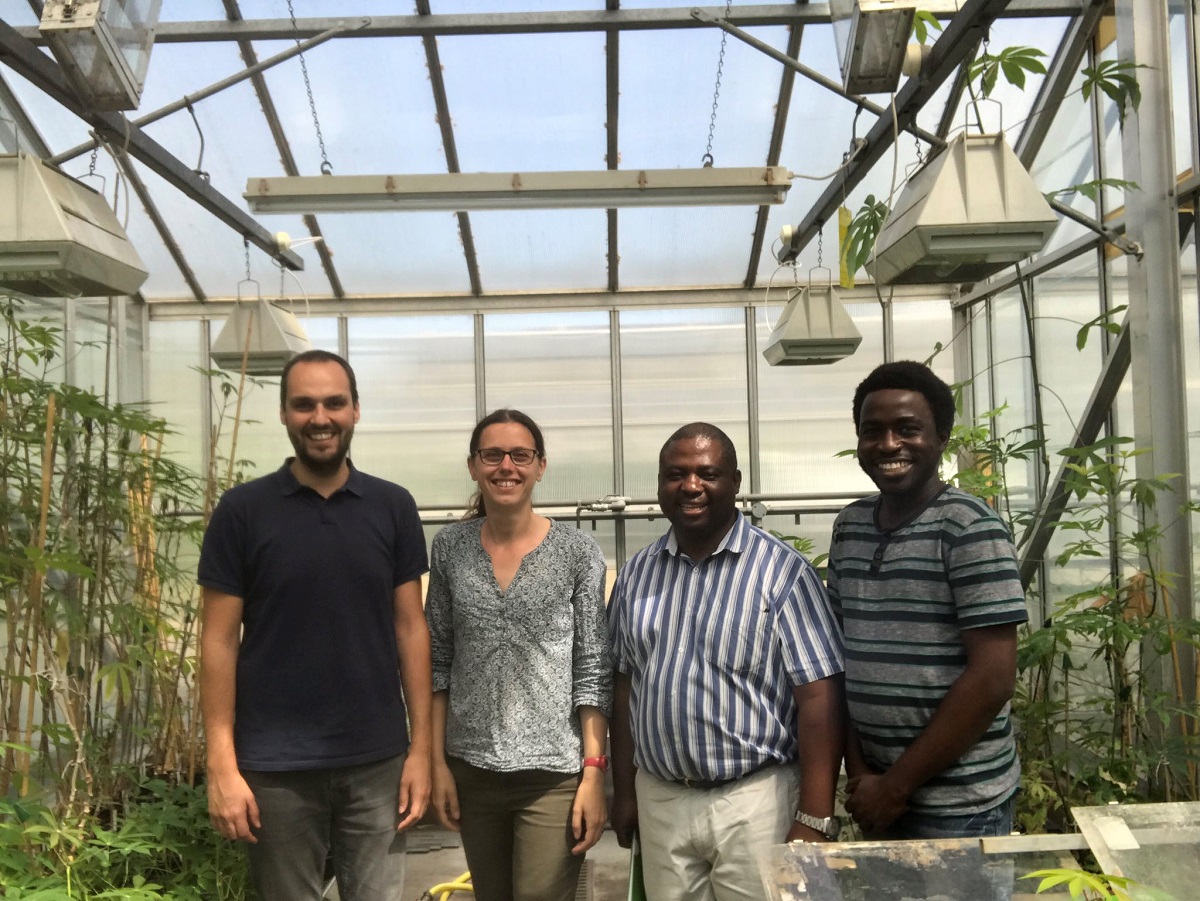
Maize streak virus (MSV) is transmitted by the insect leafhopper Cicadulina spp. In maize plants, MSV infection initially manifests as small, round, scattered spots on their leaves, which get larger as the plant grows until the spots resemble broken yellow streaks. Severe infection causes stunting, and plants can produce malformed cobs or no yield at all.
Despite a number of control strategies, the ensuing threat to food security and economic impact is significant for smallholder farmers across sub-Saharan Africa, where maize is often the most important crop. This is just one example which demonstrates the urgent need to combat plant virus diseases and their insect vectors. By using molecular techniques, scientists can detect viral diseases at an early stage of infection, and identify and differentiate between vectors that appear identical. Accurate and rapid diagnostics are crucial to develop precise and sustainable measures to control these serious diseases and their insect vectors.
NRI experts in entomology and plant virology have been involved in a suite of capacity-strengthening initiatives, as part of the ‘Community Network for African Vector-Borne Plant Viruses’ (CONNECTED). Funded by GCRF and directed by Professor Gary Foster, University of Bristol, and Professor Neil Boonham, Newcastle University. CONNECTED endeavours to establish and consolidate collaborations of international researchers to tackle vector-borne plant diseases. In addition to providing funding, the network offers ‘training vouchers’, workshops and training videos. As part of CONNECTED, NRI members, Dr Gonçalo Silva, Dr Sophie Bouvaine and Prof Susan Seal have contributed to knowledge transfer with members of participating African universities.
In 2021, Drs Bouvaine and Silva developed a series of videos for online demonstrations of several molecular techniques for the identification of insect vectors and detection of plant viruses, including polymerase chain reaction (PCR), recombinase polymerase amplification (RPA) and loop mediated isothermal amplification (LAMP) –alternatives to PCR which use lower-cost equipment that is robust, and can be battery-powered to protect the equipment from fluctuations in energy supply. These videos constitute a step-by-step protocol that will be provided to the network members so they can be replicated in the scientists’ own laboratories worldwide.
From 2019–2020, several recipients of the network’s training voucher scheme chose NRI to obtain training on molecular techniques for diagnostics, characterisation and monitoring of viruses causing plant diseases and their insect vectors. Scientists had the opportunity to use NRI’s infrastructure and facilities and to interact with virologists and molecular biologists to develop and expand their research on the crop viruses of their choice. Drs Bouvaine and Silva have also delivered CONNECTED training courses on plant virus detection, insect vector molecular barcoding, and molecular diagnostics for plant virus surveillance in Kenya, Nigeria, and the UK. Together, the CONNECTED training activities contribute to knowledge transfer and provide scientists from around the world with the necessary technical skills to further their research and to bring sustainable solutions to vector-borne plant viruses.

